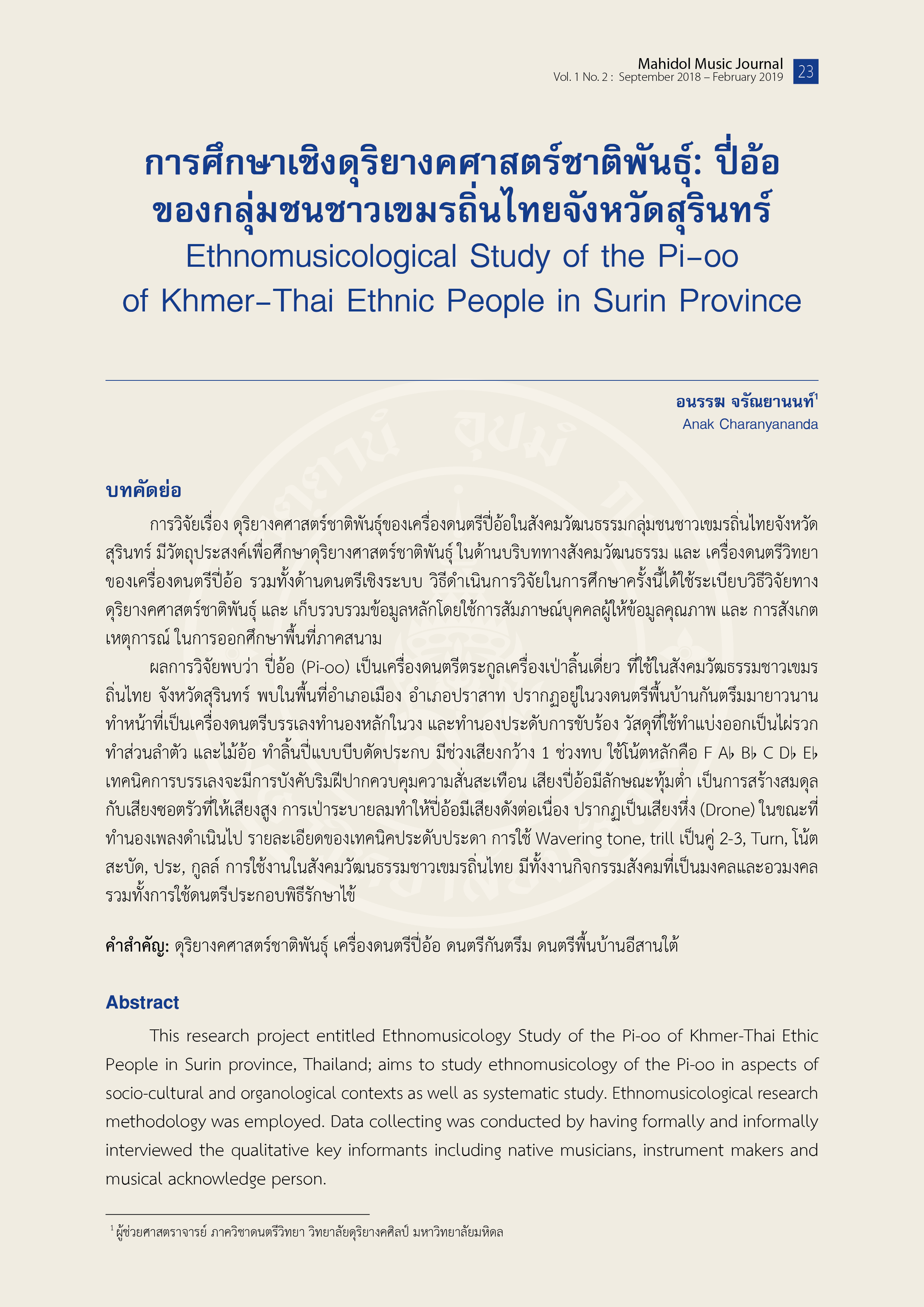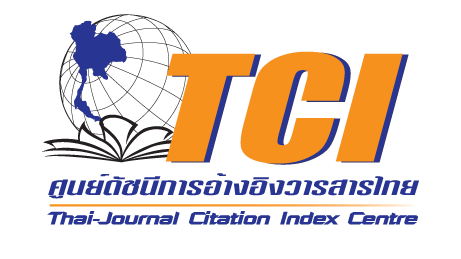Ethnomusicological Study of the Pi-oo of Khmer-Thai Ethnic People in Surin Province
Keywords:
Ethnomusicology, Pi-oo, Kantrum music, Indigenous music in the lower northeast ThailandAbstract
This research project entitled Ethnomusicology Study of the Pi-oo of Khmer-Thai Ethic People in Surin province, Thailand; aims to study ethnomusicology of the Pi-oo in aspects of socio-cultural and organological contexts as well as systematic study.
Ethnomusicological research methodology was employed. Data collecting was conducted by having formally and informally interviewed the qualitative key informants including native musicians, instrument makers and musical acknowledge person.
Results show that the Pi-oo has been a significant musical instrument of the Khmer people for a long time ago. It is still prevailed among the Khmer native people particularly in the areas of Muang district and Prasaat district. The Pi-oo has always been using to be the principal instrument in the Kantrum ensemble functioning supporting the singing and other instrumental solo. While the Pi-oo functions as the improvised supporter, various specific idiomatic techniques are manipulated into the melodic elaboration. The Pi-oo has two parts: the reed part and the body. The reed part is made from thin slices off a short reed plant pipe end pressed together to form a double reed. The reed is inserted at one end of the body which is made of a bamboo tube. The approximate performing pitches in the Pi-oo’s linear scale of F Ab Bb C Db Eb respectively. The unique sound of the Pi-oo are familiarly appeared in the ornamenting of drone, wavering tone, trill by seconds or thirds, turn, grace note, and, very much special for the Pi-oo, gool (a Pi-oo specific identical cadential formula).

Downloads
Published
How to Cite
Issue
Section
License

This work is licensed under a Creative Commons Attribution-NonCommercial-NoDerivatives 4.0 International License.
The copyright of the article belongs to the author. Published articles represent the views of the authors. The editorial team neither necessarily agree with nor take any responsibility for the article.





